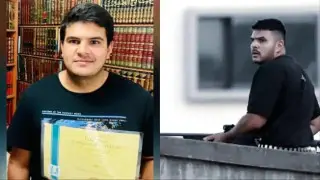
Kemal Kilicdaroglu, the 74-year-old chairman of Turkey’s primary opposition party, the Republican People’s Party (CHP), is the leading candidate challenging Recep Tayyip Erdogan in the presidential elections scheduled for May 14th. Despite the unsuitable conditions for his victory in the elections, Kilicdaroglu expressed confidence in his triumph, stating, “We will win because people want democracy.”

Kilicdaroglu, hailing from a family that adhered to the minority Alevi religion, was born in Tunceli, a city in eastern Turkey, in December 1948. He is the candidate of a coalition formed by six opposition parties to challenge President Erdogan’s rule. Kilicdaroglu completed his degree in economics at Gazi University in 1971, after which he held several high-ranking roles in the country’s economic and financial institutions and also worked as a lecturer at Hacettepe University in Ankara.
During his tenure as the director of the Social Security Institution, Kilicdaroglu actively worked towards eradicating corruption. Kilicdaroglu, representing the Republican People’s Party or CHP, was elected to the Turkish parliament from Istanbul in 2002 when Erdogan’s AKP came to power. He contested the mayoral elections in Istanbul in 2009 but lost. After the CHP chairman, Deniz Baykal resigned due to a leaked video of his alleged extra-marital affair, Kilicdaroglu initially refused to run for the position. However, he later agreed and won the post by a significant margin.
The media in Turkey has nicknamed him ‘Gandhi Kemal,’ considering him Turkey’s Mahatma Gandhi, citing his physical resemblance to the Indian leader. However, some journalists have noted that the comparison is more superficial and not based on any similarities in their ideologies or backgrounds.
In 2017, Kilicdaroglu organized a “March for Justice,” walking 450km from Ankara to Istanbul with a large number of supporters to protest against President Erdogan’s harsh measures against dissent after a failed coup attempt in 2016. Some have drawn parallels between Kilicdaroglu’s march and Gandhi’s Salt March of 1930, which was a protest against British colonial control over salt production and sales.

Throughout his political career, Kilicdaroglu has been subjected to multiple attacks. In 2014, he was physically assaulted in parliament by a visitor, causing him to sustain injuries to his cheek and eye. Despite this, Kilicdaroglu urged his colleagues to remain calm and persevere on the path to democracy. The PKK, a Kurdish militant group, targeted his convoy with a missile in 2016. The following year, Kilicdaroglu survived a bombing attempt by the Islamic State. In 2019, a mob attacked him at the funeral of a soldier killed in the fight against Kurdish militants. Currently, Kilicdaroglu and Erdogan are neck-and-neck in the election race, with Kilicdaroglu having a slight lead in the opinion polls. The tight competition could result in a second round later this month.

The Nation Alliance, also known as the “Table of Six,” which includes Kilicdaroglu’s CHP and five other opposition parties, has pledged to replace the “executive presidency” with a “Strengthened Parliamentary System” if they win. Kilicdaroglu has promised to deport millions of Syrian and Afghan refugees if he comes to power. “If the opposition candidate wins, there will be significant consequences for Western leaders. Ankara will move quickly to normalize its relationship with NATO. However, certain disagreements, such as those regarding Cyprus and Syria, will not go away. On the bright side, the rule of law will be reinstated, and relations with the EU will improve – though not without difficulty,” wrote Marc Pierini, a senior fellow at Carnegie Europe, in an article for their website in April.













Copyright © 2025 Top Indian News
